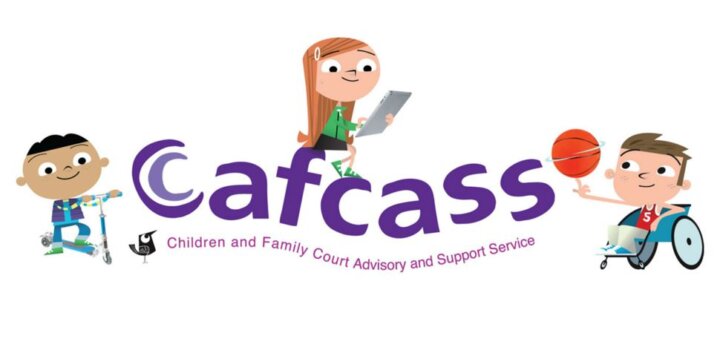The breakdown of a relationship is a difficult time for the whole family and following this, understandably, people may decide to make changes in their lives. One decision which is particularly complicated is one to relocate with any child(ren) of the family. There are lots of reasons why one parent may want to relocate; to return ‘home’ to where they grew up and to be closer to their support network, for financial reasons, for a career opportunity or to be closer to a new partner.
Relocation is a binary issue. Usually one parent wishes to relocate and the other parent refuses to give consent and they therefore have opposite objectives leaving little room for negotiations and an agreement. The decision has implications on the whole family which need to be considered carefully.
What does the law say?
Under English law, to relocate with your child(ren), you need to obtain either the consent of everyone with parental responsibility (usually the other parent) or permission from the court.
You cannot take a child out of the UK without the consent of everyone else with parental responsibility or a court order. To do so constitutes child abduction which can result in court proceedings to return the child(ren) to the UK and criminal proceedings against you. It is therefore important to obtain consent or permission before going abroad with your child(ren).
The court’s take the same approach to relocations both within the UK or internationally.
What should you consider?
Is it in the child(ren)’s best interests to relocate?
The child(ren)’s welfare is the court’s primary consideration. The court will make a decision based on what is in the child(ren)’s best interests. In doing this, they apply factors set out in the Children Act 1989 known collectively as the ‘welfare checklist”. You should therefore consider the following:
- What the child(ren)’s views would be in respect of the proposed move;
- How the child(ren)’s physical, emotional and educational needs will be affected by the proposed move;
- The likely effect on the child(ren) of the change that the proposed move would bring;
- The relevance of the child(ren)’s age, sex and background in relation to the proposed move;
- Whether the child(ren) has suffered harm or is likely to suffer harm;
- How capable you each parent is of meeting the child(ren)’s needs.
Is there a genuine reason for wanting to relocate with the child(ren)?
It is important that a detailed explanation is provided for the reason for the proposed relocation. As discussed above, this could be for a variety of legitimate reasons but must not be an attempt to prevent the other parent from seeing the child(ren).
Do you have a well thought out proposal for the practical arrangements?
You need to do some research, if you haven’t already, into the practical arrangements that you would put in place if the application were to be successful. For example:
- Accommodation options for you and the child(ren);
- Schooling for the child(ren) and details about the enrolment process;
- How you will generate an income to support yourself and the child(ren);
- Opportunities for extra-curricular and social activities for the child(ren);
- The support network you will have;
- Any plans to assist the child(ren) to adapt to their new environment;
- The timing of the move and how to minimise the impact of the move on the child(ren); and
- Most importantly, realistic proposals for the other parent to spend time with the children (by way of both direct and indirect contact).
What is the detriment to the other parent and their relationship with the child(ren) if the application is successful?
There is a presumption under English law that both parents should be involved in a child’s life, unless evidence to the contrary is shown. The courts will be proactive in ensuring that each parent has as significant role in a child’s life as possible.
It is likely that your child(ren)’s relationship with their other parent is likely to be impacted by a relocation because, assuming they do not decide to move as well, contact will become more practically difficult due to increased distance.
You need to ensure that you have thought about realistic contact proposals and how you will facilitate your child(ren)’s ongoing relationship with their other parent.
What will be the impact on you of the refusal of the application?
You should consider the impact on you of the application being refused. Would you relocate anyway without the child(ren)? Would you be able to cope financially, emotionally and practically if you were to stay where you are? Is there another option?
Seek legal advice
The decision to relocate with your child(ren) is as not straight forward as it may seem. It is vital to prepare a strategy from the outset as this will have an impact on the chances of being able to obtain consent from the other parent or succeed in an application to the court. You need to be aware of the strengths of your case, so that you can highlight them, and the weaknesses of your case, so that you can deal with them.
Obtaining the other parent’s consent to relocate
There is a huge value to be placed on obtaining consent from your child(ren)’s other parent to avoid contentious litigation. It is recommended that you take legal advice on your position before you take any steps or have any conversations around relocation.
It is good practice to be open about your intentions to relocate and try to have sensible discussions with your child(ren)’s other parent and try to come to an agreement. If you feel that this will be too difficult, you could attempt mediation or negotiate through solicitors to try to reach an agreement which enables to you to relocate with your child(ren).
Application to obtain permission from the court to relocate
Relocation cases are difficult because of the binary nature of the outcome and the common mentality that one parent will ‘win’ and the other will ‘lose’. Often in these situations, a court application is inevitable because reconciling the opposing wishes of two estranged parents is difficult. One parent continues to wish to relocate for one of the reasons set out above and the other parent objects to the move, usually because the impact is that they will be further from the child(ren) making seeing them more difficult.
If you are unable to get consent from your child(ren)’s other parent then you will need to make an application to the court for permission.
The key stages in the court process can be summarised as follows:
- The parent who wishes to relocate with the child(ren) will have to make an application to the court for permission which is often referred to as an application for ‘leave to remove’. There is a requirement to attend a mediation session before the application is made.
- Following the application being made, CAFCASS (The Children and Family Court Advisory and Support Service) will be appointed by the court to carry out safeguarding checks. The CAFCASS officer does this by speaking to both parents and contacting the police and local authority to find out whether there are any welfare risks to the children. They will then prepare a letter to the court summarising their findings.
- The first court hearing (the First Hearing Dispute Resolution Appointment) is listed and both parents will need to attend, usually with legal representation. The hearing provides an opportunity for parents to have discussions outside of the court room and try to come to an agreement. If an agreement is not possible then the court can deal with interim contact arrangements and will order directions to progress the case. These directions include, for example, the filing of witness statements by each parent, whether there is the need for any expert evidence and the preparation of a full welfare report either by CAFCASS, or an independent social worker. The latter option is open to parents who agree to privately instruct, and pay for, an independent social worker of their choice.
- The court may list another hearing (the Dispute Resolution Appointment), to give another opportunity for negotiations and to provide further directions to ensure that the case is ready for the final hearing.
- Witness statements are prepared by both parents setting out their case and proposals; the applying parent in favour of the move and the other parent against the move. These documents are very important in relocation applications and are usually very detailed and lengthy.
- The welfare report is prepared by the CAFCASS officer or Independent Social Worker. The individual preparing the report may speak to both of the parents, the child(ren), family members, schools and medical professionals to assist them. They should then provide a detailed evaluation and assessment of the situation and will recommend to the court what they believe is in the best interests of the children.
- The Final Hearing will take place. The judge hearing the case will have a bundle of documents including the application, the parents’ statements and the welfare report. Usually, both parents and the author of the welfare report will be required to give oral evidence. It is unlikely that the judge will want to hear from the child(ren) in court. The judge will then consider all of the evidence and will make a decision to grant or refuse the application. A court order is then prepared to reflect the judge’s decision.
Alternative to issuing court proceedings
There is also the option to enter into Family Arbitration as an alternative to issuing court proceedings if both parents agree. Arbitration is particularly well suited to relocation cases, in particular due to the Arbitrator’s ability to decide the issue in a matter of weeks. It is not uncommon for disputes to arise whether a parent should be allowed to take a child on holiday abroad only weeks before the holiday is due to take place, which can result in a missed holiday and financial loss.
Conclusion
If you are considering relocating with your child(ren) following divorce or separation, you need to obtain either consent of the other parent or of the court to do so. You need to have a clear strategy and proposal in place and seeking legal advice at an early stage is key to assist you with this.
















